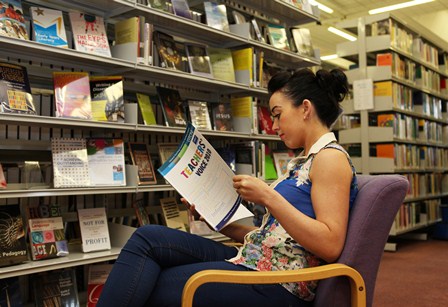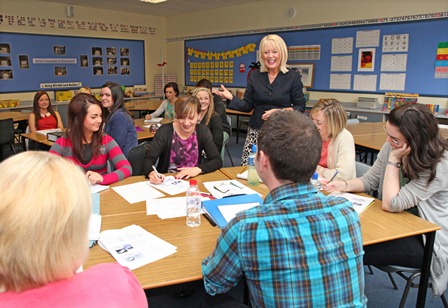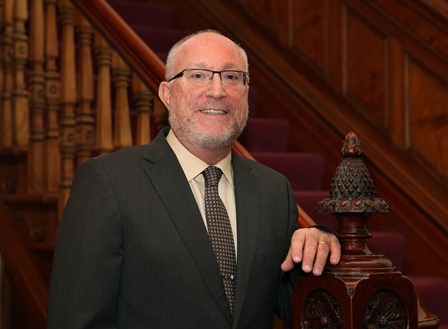I welcome news of the change of policy on employment practice at the Council for Catholic Maintained Schools which was reported in the Irish News. It is a significant step in addressing an employment issue which has sometimes been presented in a very simplistic and indeed negative way. It is an issue which involves fundamental and, to some extent, competing principles in a democratic and pluralist society, particularly with regard to aspects of human rights and equality. Furthermore, the reporting of the decision has also been helpful in highlighting some elements of the more general debate about the coexistence of a number of school sectors in the north and the arrangements for the provision of teacher education.
Genuine occupational requirement
The need to promote equality of opportunity is both a legal requirement and a moral imperative. However, equality has to be understood and contextualised in any given situation. Those who responded to the CCMS decision by calling for an end to the requirement for a qualification in Religious Education altogether should take account of the fact that it is a genuine occupational requirement which must be respected. Respect for genuine occupational requirements in education would appear to be missing in some quarters of our society. For example, just recently I received notice of a complaint that a high level of competence in the Irish language as a requirement for admission to the College’s PGCE programme was considered to be discriminatory. The PGCE programme at St Mary’s is designed to provide teachers for the Irish Medium sector, which has a growing parental and community demand. The complainant would seem to be failing to recognise that surely it follows that a high level of Irish is a genuine occupational requirement for teaching in Irish Medium schools. I use this example to demonstrate a point, and that same point applies in equal measure to Catholic primary schools and the education of their teachers.

Philosophy and Values
It is the case that Catholic primary schools throughout the world seek to educate the children in their care within the framework of a distinctive philosophy and associated set of values. In the local context this is best presented in a paper entitled “Proclaiming the Mission” which was published by the Northern Bishops in 2001. The paper draws on the work of the English educationalist Albert Price and it argues:
"For Price, the Christian ideal of education – education in its true sense – is based on love, solidarity, the common good, truth and justice. It is not an economic or even a political activity. True education is a moral activity which has at its heart the twin notions of the fundamental worth of each person and the notion of a higher common good to which each belongs and through which each expresses his/her common God-given humanity."
The paper concludes that the need for a genuine values-based education has never been greater, and the strength of the Catholic schools is rooted in their commitment to this mission.
It is my view that a values-based education, with religious values fully integrated and a clear focus on its mission, enables institutional coherence as well as a strong sense of human solidarity. Organisations which have these characteristics possess the ingredients of success. Catholic schools in this country, on the whole, have been extremely successful and will continue to be so. As in many parts of the democratic world, they coexist with other school sectors, offering parents and pupils choice and contributing to the common good. Democracy by its very nature facilitates such diversity and pluralism.
Relationships
A values-based education as described above also places a high premium on the need for effective relationships to exist within schools, as well as with the parents and communities they serve and between schools of all sectors. It is from the bedrock of effective relationships that the motivation to share emerges. No school is an island and this applies in equal measure to the school sectors. At this time, citizens recognise the absolute need for the sharing of the finite resources available to education. Sharing across the sectors promotes greater efficiency and improves social cohesion. Indeed, healthy societies are characterised by both diversity and sharing, and not, as some advocate here, by a drive for uniformity which is designed to serve political goals.
Effective relationships at all levels are a prerequisite for educational development in this society. I see the existence of ineffective relationships at work when people speak about education in the north with reference to the term “apartheid”. It is worth reminding ourselves what apartheid actually was: a system of racial segregation enforced through legislation and overt power in pre-democratic South Africa. We, however, in this part of the world today, enjoy the benefits of democracy and pluralism where parental choice is a key dynamic in our educational system.
Teacher Education

I therefore welcome the statement from the head of Human Resources at CCMS when he stressed that the essential nature of the Certificate in Religious Education would remain. Parents who choose Catholic primary schools for their children have the right to expect that the teachers in such schools have the appropriate education or training. The goal of Catholic education is, above all else, the holistic formation of the student, and it is a philosophy which promotes an understanding of educational excellence in the context of an integration of faith and reason. This is a very challenging educational position, particularly in today’s world, and it requires teachers to be well educated for their role in a Catholic school. Teachers are the critical agents of educational advancement by enabling pupils to engage actively with the whole curriculum. Their education or training requires considerable investment of time and resources. Teacher education involves a high level of knowledge, understanding, experience and skill to develop confident and competent classroom practitioners. It is a sophisticated and complex learning process which is progressive over the lifespan of a career in teaching and it is deeply human.
St Mary's University College
At St Mary's we offer BEd and PGCE students the opportunity to prepare for teaching in Catholic schools through the provision of a programme in Religious Education which leads to the award of a Certificate. We do this because our mission is inspired by a Christian-Catholic philosophy of education. The education we offer our students has a profound sense of the sacred dignity and value of every human person, made, as we are, in the image and likeness of God. In our increasingly secular and materialistic society, St Mary’s serves the common good by the quality of our testimony to this truth. I am pleased that through hard work and commitment to the formation of the whole person, we have gained a sterling reputation for pastoral care and for the intellectual, moral, social and spiritual development of our students. Our approach to education is ambitious for our students: it wants each and every one of them to recognise and develop his or her own gifts and talents and then to use them, not merely for their own benefit but in the service of others.

The mission of St Mary's University College, with respect to teacher education, is therefore not restricted to "training teachers for Catholic schools". It is about the preparation and formation of student teachers within the framework of a Christian-Catholic philosophy and value system for a lifetime of learning, service and leadership in Catholic schools, as well as in other schools locally and internationally.


